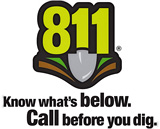Pipeline Safety and Awareness for First Responders
First Responders
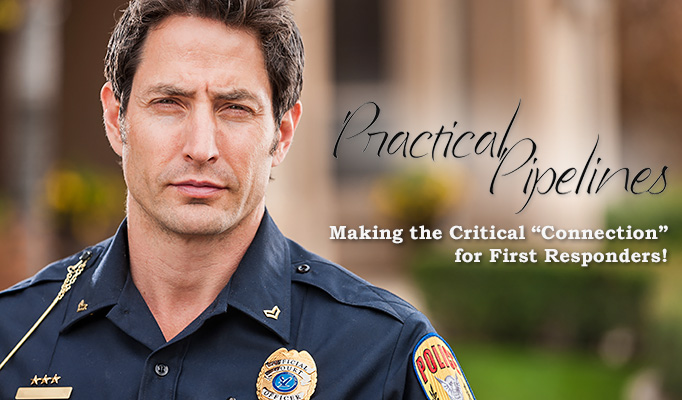
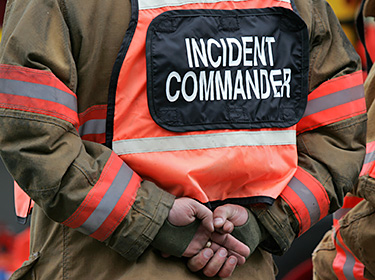 Handling Emergencies
Handling Emergencies
No one knows emergency responders as well as the Smalley Foundation. For two decades we have been educating emergency responders about pipeline safety and response. This cornerstone program was determined before the Smalley Foundation had walls.
First on the Scene
This immediate need was identified as a result of the pipeline incident that took the life of Danielle and her friend Jason. If it were not their vehicle that became the ignition source of the 15-acre blast that day, it could have very well been emergency responders who were unknowingly headed towards that same hazardous path, in response to 911 calls.
Coming to the Rescue of Liaison Meetings
The Smalley Foundations flagship program for emergency responders experienced an update in summer of 2015 with help of pipeline safety funding from the Pipeline and Hazardous Materials Safety Administration (PHMSA) and the Department of Transportation (DOT).
Practical Pipelines is about people ... not just programs. That’s why we have strategies in place that reach emergency responders at times and places that work best for them and have multiple training methods available for groups or individuals. We not only build ongoing relationships with emergency responders but help strengthen their connections with their local pipeline operators.
Our motto, “Making the Critical Connection for First Responders” represents a unique strategy that changes the attitude of “training for a rare emergency” to considering pipelines a part of everyday public safety. This mindset is the connection that emergency responders need to keep pipelines on the forefront of their everyday considerations, allowing them to quickly identify if an emergency involves a pipeline, saving critical time and deploying an emergency response that can reduce loss.
We do this by:
- Revealing local damage statistics
- Reviewing common response failures
- Providing a comprehensive view of ALL roles in damage prevention (excavators, pipeline operators, emergency responders, and the general public)
- Linking them to preparedness resources
- Engaging them in a mission of damage prevention
- Maintaining ongoing communications and support
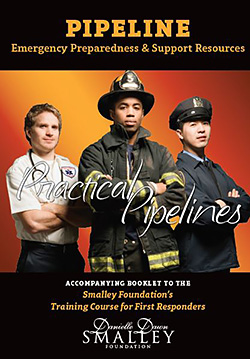 What Sets Us Apart
What Sets Us Apart
This program enrichment positioned it a leading resource for liaison meetings in the pipeline industry. Here are some of the dynamics:
- Fresh and present-day content
- Pipeline maps and information local to delivery area
- Multiple delivery methods and languages
- Large-scale to individual trainings
Advisory Group
Special thanks to our advisory group for their ongoing effort and involvement.
 FROM LEFT: Thomas Harvey, Fire Chief, Princeton, TX; Steve Howie, EMC, Kaufman County, TX; Rick Townsend, Fire Chief, Forney, TX; Christine (Chrissy) Rogalski, Vol. FF, Ennis, TX; Tim Gothard Fire Chief/EMC, Anna, TX; Steven Deffibaugh Asst. Chief, Princeton, TX.
FROM LEFT: Thomas Harvey, Fire Chief, Princeton, TX; Steve Howie, EMC, Kaufman County, TX; Rick Townsend, Fire Chief, Forney, TX; Christine (Chrissy) Rogalski, Vol. FF, Ennis, TX; Tim Gothard Fire Chief/EMC, Anna, TX; Steven Deffibaugh Asst. Chief, Princeton, TX.
Not pictured: Rick Barnes, Police Chief, Forney, TX
If you would like to join our multi-disciplinary group of emergency response program advisors, please contact us!
“The Smalley Foundation training was outstanding, left a lasting impression and was much more effective than that yearly one that I typically attend.”
Influencing Behaviors
Things attendees said they will consider DOING as a result of the training:
- Preplan and have maps prior to an emergency
- Share 811 with others
- Train dispatchers/Incorporate NENA training
- Have pipeline company info available on desktops for all call takers
- Watch excavation in community more closely
- Start watching for pipeline signs in the area
- Carry color code card
- Know and educate my department about the pipeline types and locations in our city
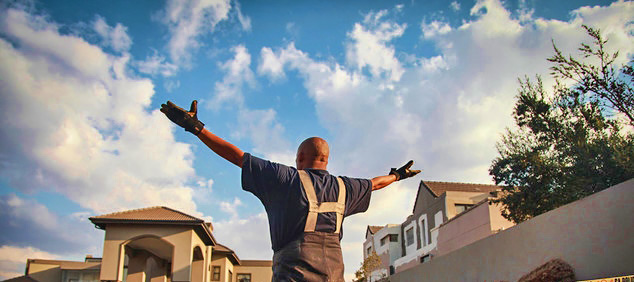
Changing Attitudes
 Things attendees said they THINK DIFFERENTLY about as a result of the training:
Things attendees said they THINK DIFFERENTLY about as a result of the training:
- Taking a more active role in pipeline safety
- Considering migration when parking near storm drains or covers
- Staying up to date on pipeline information in my community
- The importance of attending training
- Had no idea about the different kinds of pipelines and the different things they transport
- Going online for maps
- Watching for pipelines and knowing more about my area
A first responder in the 1996 Danielle Dawn Smalley pipeline incident gives testimony more than 20 years later of what it was like that day and how emergency responder agencies can be better prepared today with help of programming provided by the Danielle Dawn Smalley Foundation and their industry partners.

